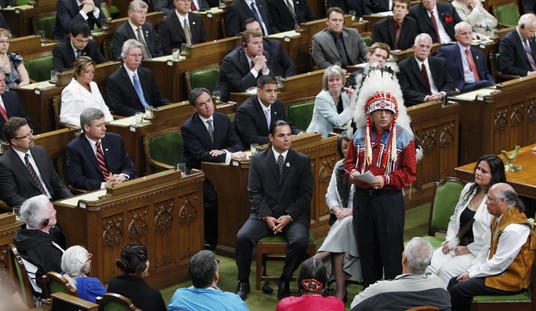WASHINGTON – An official with an organization created to aid whistleblowers told a House subcommittee that the Obama administration has been “justifiably criticized” for failing to protect those who produce information about governmental malfeasance and that current law fails to provide them with sufficient safeguards.
Tom Devine, legal director of the nonprofit and nonpartisan Government Accountability Project, appeared before the House Subcommittee on Federal Workforce, U.S. Postal Service and the Census and noted that whistleblowers have experienced “both the best and the worst of times” since passage of the Whistleblower Protection Enhancement Act two years ago. Several additional steps, he said, need to be taken to “achieve the act’s promise.”
“The pressure to enforce abuses of secrecy through silence is timeless, trans-ideological and bi-partisan,” Devine said. “The WPEA’s most significant issues have not yet been resolved, while agency creativity already is producing new, more intimidating forms of harassment. At the same time, the rules that govern practices at merit system remedial agencies increasingly are becoming out of date.”
One significant issue, Devine said, centers on the administration’s handling of leaks dealing with sensitive materials. He told the panel that “criminal witch hunts are the most effective means available to scare employees into silence.”
“The Obama administration has been harshly, justifiably criticized for a ‘War on Whistleblowers’ through unprecedented Espionage Act prosecutions for allegedly leaking or preparing to leak classified information,” Devine said.
Since passage of the Whistleblower Protection Enhancement Act, Devine said, whistleblowers have witnessed “a sharp shift from traditional employment actions to criminal investigations and prosecutive referrals. Increasingly, whistleblowers are given the choice of resigning or risking jail time.”
Government officials are turning to criminal investigations to silence whistleblowers because they are “much easier and less burdensome than multi-year litigation with teams of lawyers, depositions, hearings and appeals,” Devine said. “All it takes is an investigator who is proficient at bullying.”
Criminal investigations are particularly effective, he said, because they carry a “chilling effect” on those who are potentially facing prison.
Devine told the panel that it remains unclear whether the law protects whistleblowers from “this ugliest form of retaliation” and urged them to consider additional protections.
Whistleblower protection laws have been on the books for more than 30 years with the intent of encouraging federal government employees to report fraud, waste and abuse while promising to protect them from retaliation. The concept was officially entered into law as part of the Civil Service Reform Act of 1978, leading then-President Jimmy Carter to declare that “the act assures that whistleblowers will be heard and that they will be protected from reprisal.”
The law was extended with passage of the Whistleblower Protection Act in 1989 and again under the Whistleblower Protection Enhancement Act of 2012. A federal agency can be found to have violated the law if officials take or threaten to take retaliatory personnel action against any employee for disclosure of information. Whistleblowers are empowered to file complaints if they believe the agency is responsible for gross mismanagement, waste of funds, abuse of authority or a substantial and specific danger to public health or safety.
But the law hasn’t always worked as intended. The Merit Systems Protection Board, which handles whistleblower complaints, rarely sides with those coming forwards with information. Since 2000, according to the Government Accountability Project, the board has sided with whistleblowers three times in 56 cases. Meanwhile, the U.S. Court of Appeals in the District of Columbia, the only panel authorized to consider whistleblower cases, has attracted criticism from Sen. Chuck Grassley (R-Iowa), ranking member on the Senate Judiciary Committee, and others for misinterpreting whistleblower laws and setting precedent that is hostile to claimants.
In response, the House has passed the All Circuits Review Extension Act, which would extend for five years a pilot program to permit any U.S. Circuit Court of Appeals to consider a whistleblower case. Companion legislation also has passed the Senate Homeland Security and Governmental Affairs Committee.
A 2010 survey by the Merit Systems Protection Board found that abuse personally observed by federal employees is rarely reported to anyone with investigative authority. The random survey of more than 40,000 federal employees showed that more than 10 percent of federal employees had witnessed “illegal or wasteful activities” but only one percent of those who observed the wrongdoing reported it to the Office of Special Counsel, one percent to the Government Accountability Office, one percent to law enforcement and five percent to their agency’s inspector general.
The subcommittee also heard from a pair of whistleblowers represented by the Government Accountability Project who faced retaliation. Robert MacLean, a former air marshal for the Transportation Security Administration, told MSNBC in July 2003 about an unsecured text message he received while working for the agency in Las Vegas office ordering all marshals to cancel hotel reservations — in an effort to reduce spending, air marshals would be removed from many long-distance flights that require overnight stays.
MacLean was fired following an investigation in April 2006 for disclosing prohibited security information. But it wasn’t until August 2006 that the TSA retroactively marked MacLean’s July 2003 disclosure as being “sensitive security information.” MacLean filed suit and three judge panel for the U.S. Circuit Court for the District of Columbia held that his disclosure did not violate the law and could be offered as a defense under the Whistleblower Protection Act. The federal government then appealed and the case is slated to be heard by the U.S. Supreme Court in November.
“I blew the whistle, because I had to,” MacLean told the subcommittee. “I could not live with the tragedy risked if I had been the cynical silent observer. When we think about why our movement matters, put yourself in my place and ask yourself, ‘What if I had remained silent?’ I believe that I made a difference by blowing the whistle to defend our country.”
The second whistleblower, Dr. Robert Van Boven, told the panel that he was hired in 2007 to administer the Brain Injury and Recovery Lab operated by the Central Texas Veterans Health Care System. He was fired in January 2008, Van Boven said, for informing Department of Veterans Affairs officials about transgressions taking place in the Austin-based facility, asserting that $2.1 million was being wasted on worthless research. The VA refused to end the research and subsequently terminated his employment.
Van Boven sued the VA and eventually reached an out-of-court settlement. He told the panel he prayed that his revelations “may contribute towards a better appreciation of the need for more protection of those who witness wrongdoing or gross mismanagement in government so that they do not fear retribution for speaking out. Suppressing this freedom will undercut transparency, integrity and the ability of government to fulfill its mission — to serve the people.”









Join the conversation as a VIP Member